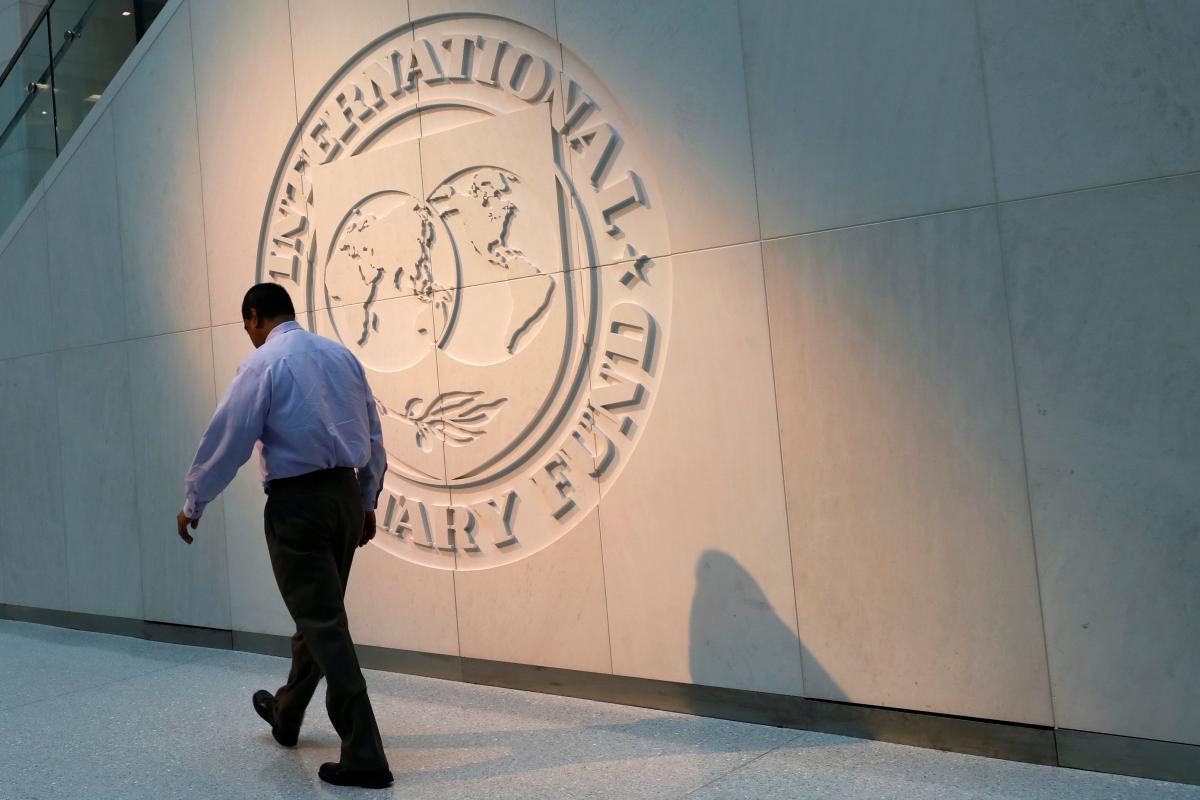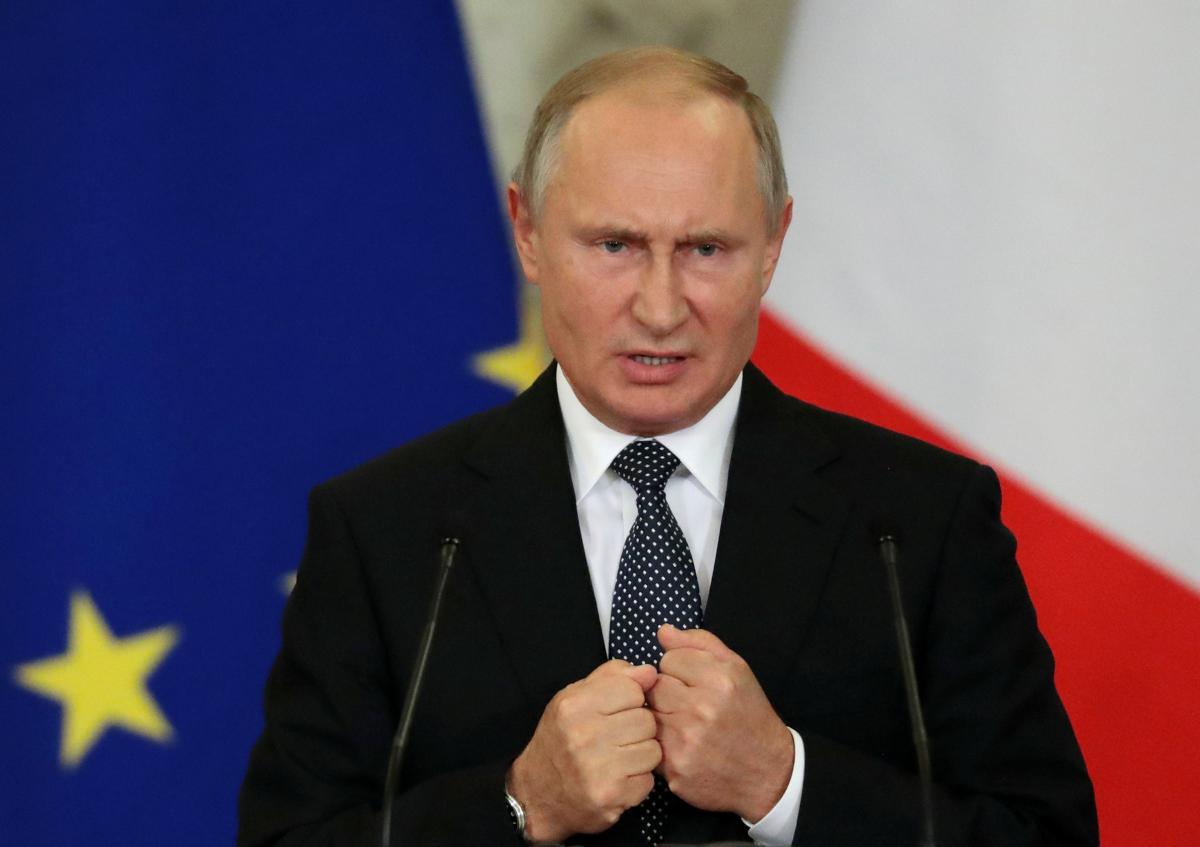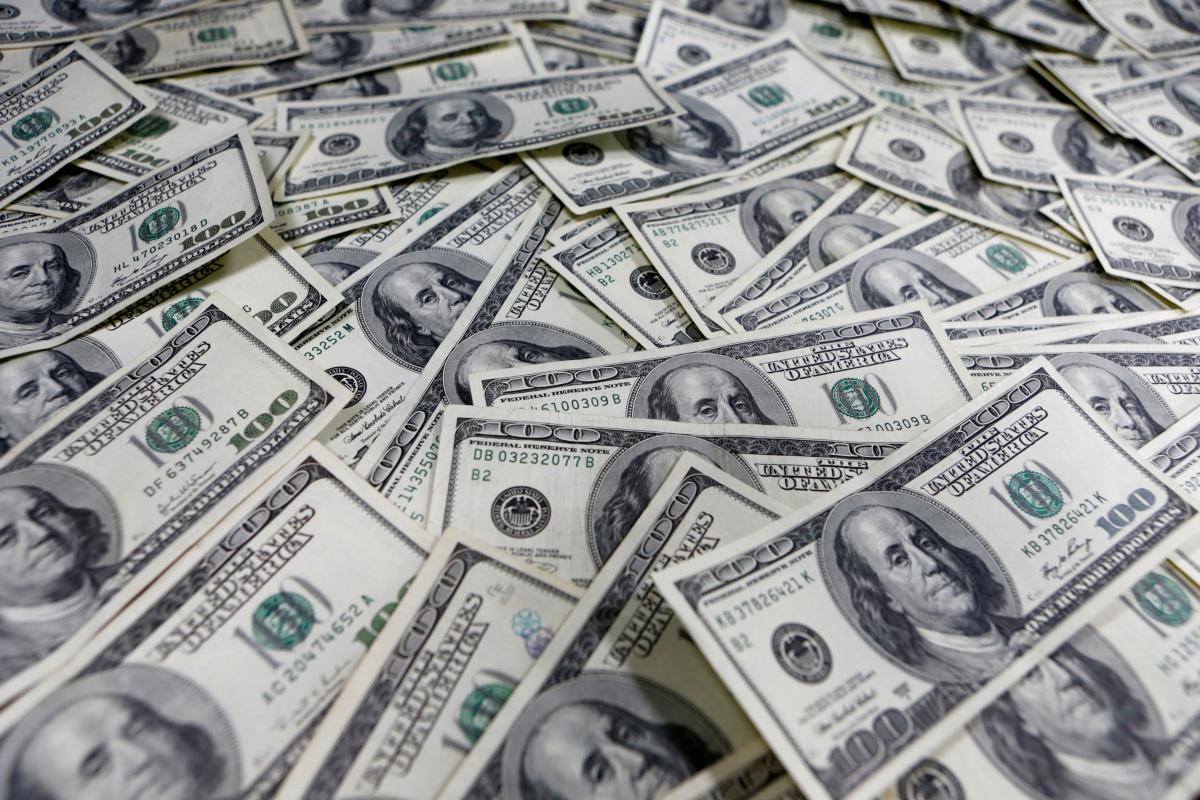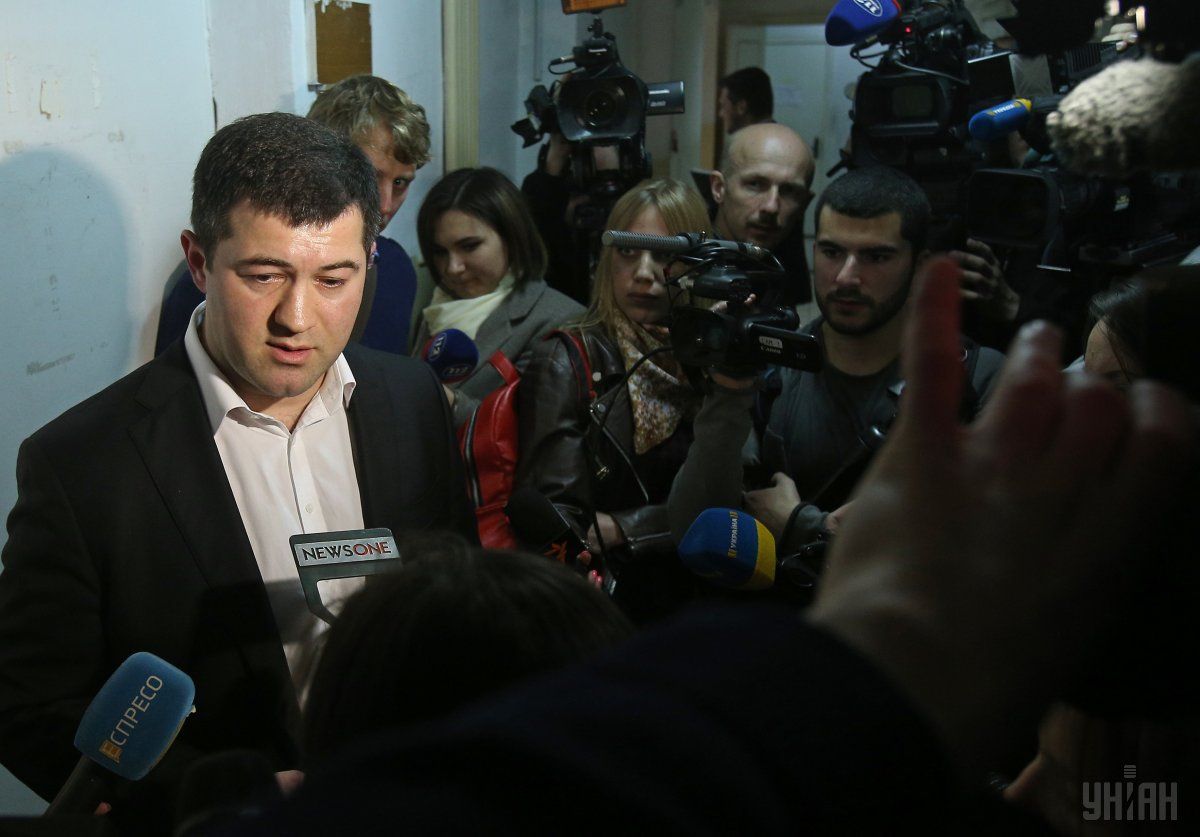
Year's balance: Reconciliation with IMF, bills for Russia, and new investors
Ukraine secured a new cooperation program with the IMF, scored several loud victories in international courts against Russian aggressors, attracted new investors, and boasted a record harvest – these are the main economic results of the outgoing year.
The main event of the year in the economy for Ukraine is the completion of a prolonged pause in relations with the key creditor, the International Monetary Fund. On December 18, the IMF approved a new fourteen-month stand-by program for our country in the amount of $3.9 billion, and already on December 21, we received the first tranche of $1.4 billion.
The launch of the new program became possible after a number of preconditions were fulfilled, including the adoption of the state budget for 2019 with a deficit of 2.3% of GDP, an increase in gas tariffs for the population by 23.5%, and the start of the reform of the State Fiscal Service through its unbundling into tax and customs services.
The decision on the subsequent tranches will be made in May and November 2019 during the review of the fulfillment of the terms of the memorandum. Among them is a continued policy of budget savings, reducing inflation while maintaining a flexible exchange rate, a long overdue restart of large-scale privatization, further increase in gas prices to import parity, the introduction of the Anti-Corruption Court, and the promotion of land reform. That is, the Fund has developed a new program to make Ukraine work on mistakes of the previous program, understanding that it is not worth expecting more serious steps in the period of elections.

Immediately after the announcement of the new program with the IMF, at the end of October, Ukraine placed two Eurobond issues worth $2 billion. In the application collection process, nearly 400 investors expressed interest in purchasing our bonds for a total of $4.9 billion. As a result, the bonds were bought by investors from the United States and the European Union.
Also, the new program with the IMF allowed to “unfreeze” relations with other official creditors. The European Union has provided Ukraine with the first tranche in the amount of EUR 500 million under the new program of macro-financial assistance worth EUR 1 billion. The World Bank provided guarantees for $750 million, due to which our country has already raised $350 million in foreign markets. Thus, by the end of December, the international reserves of Ukraine had updated a five-year maximum of $20.7 billion.
The long-awaited reconciliation with the key creditor allowed the national currency to relatively calmly endure the traditional period of turbulence at the end of the year. The hryvnia has not reached the predicted mark in the state budget for 2018 at UAH 30 / USD and will celebrate New Year with the rate of UAH 27.68 / USD, which is 1.5% higher than a year ago. The average rate for the year amounted to UAH 27.22 to the dollar.
Russia has to pay

The outgoing year brought Ukraine several important victories over Putin's aggressive Russia on the legal front. In February, the Russian monopoly Gazprom lost the legal battle to the Ukrainian state holding Naftogaz in the Stockholm arbitration. The final amount of settlements between the companies under contracts for the supply and transit of gas in accordance with the decision of the arbitration is $2.6 billion in favor of Naftogaz. A daily amount of interest increases this debt by $500,000.
The Kremlin’s gas blackmailer, Gazprom, refused to comply with the arbitration award, forcing the Ukrainian company to launch the process of enforcing debt collection. As a result, the shares of Nord Stream AG, the owner of the Nord Stream gas pipeline, and Nord Stream 2 AG, the construction operator of Nord Stream-2 in Switzerland, and Gazprom assets in the United Kingdom and the Netherlands were arrested. In addition, in November, a court in Switzerland prohibited Nord Stream AG and Nord Stream 2 AG companies from making any payments in favor of Gazprom.
The claims against the Russian monopoly could grow by another $12 billion, since in July, Naftogaz filed a new lawsuit demanding a revision of the gas transit tariff. According to this lawsuit, the Ukrainian side is ready to settle if the Russians voluntarily pay the full amount of the claim.
Russia's illegal annexation of Crimea, as a result of which the Russians unceremoniously appropriated the property of Ukrainian companies and banks, pushed thousands of our fellow citizens out of the peninsula, delivered a response blow at the Kremlin. In November, the International Arbitration Court in Paris decided to recover $1.3 billion in compensation from the Russian Federation in favor of the Ukrainian state-owned Oschadbank. Moscow does not recognize the ruling but Oschadbank intends to collect the debt through arrest and sale of property of Russian state-owned companies throughout the world. Due to the accrued sanctions, the debt grows daily by almost $100,000.
The outgoing year did not bring Russia a quick victory in the dispute over the so-called "Yanukovych debt." The Court of Appeal of England sent the Russian claim on recovering from Ukraine the debt on Eurobonds worth $3 billion for a new consideration. The proceeding ongoing from January 2017 will be carried out according to the full procedure, not the accelerated one, as the Russians wanted. The court did not ignore the unusual circumstances of receiving the Kremlin's “bribe” in December 2013 by then-head of our state Viktor Yanukovych, as well as the facts of Russian aggression against Ukraine.
In addition, Russian businesses, which enjoyed their operations in Ukraine for more than two decades, are saying goodbye to our market. This is the price to pay for the Kremlin’s aggressive policy. The only bankrupt bank in our country in the outgoing year was a subsidiary of the Russian state-owned Vnesheconombank – VTB Bank. In November, the Individual Deposit Guarantee Fund introduced a temporary administration to this bank, and in December, began its liquidation. On the eve of the bankruptcy, VTB Bank confirmed the problems with liquidity and declared readiness to stabilize operations failed to receive the necessary support from the parent structure.
Russia's traditional response to the civilized and reasonable actions of Ukraine was an expected saber-rattling of weapons. On November 25, Russian warships opened fire at three Ukrainian naval boats in the Kerch Strait and captured 24 Ukrainian sailors. In response, Ukraine imposed martial law in ten regions. Against this decision, the Ukrainian currency market was in a state of fever for several days as the hryvnia fell against the dollar by more than 50 kopiykas. But within three days, the situation calmed down, the national currency won back positions, and then even became stronger. On December 26, martial law in Ukraine was abolished, but Ukrainian sailors remain in Russian captivity.
New Investors and opportunities

The passing year was marked by the long-awaited arrival of the world's largest discount air carriers with affordable fares. Since October, Irish Ryanair has opened flights from Ukraine, intending to invest $1.5 billion in our country within three to five years. In December, flights from Kyiv were launched by Italy's Ernest Airlines. The Hungarian airline Wizz Air also spoke of the improvement of the investment climate in our country and plans to resume operations of its Ukrainian subsidiary, planning to invest $400 million.
In addition to low-cost airlines, world-famous retailers enter Ukraine. Thus, the largest in Europe clothing retail chain, the Swedish company H & M, opened its first store in our country in August, and the second in October. The world's largest seller of furniture and household goods - the Swedish IKEA - announced the opening of the first store in Ukraine in the summer of 2019, the second - at the beginning of 2020.
The largest investor in Ukraine, the European Bank for Reconstruction and Development, called the entry of large international companies such as IKEA and Ryanair as confirmation of the growth of foreign investors' confidence in Ukraine.
The largest infrastructure project of the decade launched in the outgoing year – the Beskydy tunnel connecting Ukraine with the European Union via rail – opens up new horizons for Ukraine. The volume of investments in its four-year construction with the participation of our country, the EBRD and the European Investment Bank amounted to almost UAH 3 billion.
In addition, the export potential of our country continued to strengthen in the outgoing year – the farmers harvested a record 70 million tonnes of grains. According to forecasts of the agrarian ministry, grain exports in the 2018-2019 marketing year may exceed 47 million tonnes, which is 18% higher than the 2017 figure.
Not bad are the prospects of a framework agreement signed with the General Electric on the delivery to Ukrzaliznytsia of up to 225 locomotives with localization of production of up to 40% in the amount of $1 billion.
Unfortunately, the European integration processes have increased the flow of labor migrants from Ukraine, which may adversely affect the country's economy in the long term. But so far these processes have had a positive effect, since labor migrants have transferred $6.3 billion to Ukraine in half a year and, according to the National Bank, by the end of the year, this figure will increase to $11 billion.
Personnel issues
The outgoing year will be remembered for important appointments and loud scandals surrounding some top officials. Thus, in March, the Verkhovna Rada supported the proposal of President Poroshenko to dismiss Valeria Gontareva from the post of the National Bank Governor and appoint Yakiv Smolii. Prior to that, he served as first deputy head of the regulator and for almost a year – since May 2017 – as the NBU acting head after Gontareva filed a resignation with the president and went on a long leave.
In June, the parliament dismissed Finance Minister Oleksandr Danyliuk after two years of work and a spat with Prime Minister Volodymyr Groysman. Oksana Markarova, who held the post of deputy minister since March 2015, and first deputy minister of finance since April 2016, became the temporary head of the Ministry of Finance, eventually became the minister.
The scandals around the leadership of the State Fiscal Service shook the country throughout the year. Roman Nasirov, dismissed by the Cabinet of Ministers as head of the SFS, in connection with the investigation of the Specialized Anti-Corruption Prosecutor's Office over wrongdoings worth UAH 2 billion, in December 2018 received a court decision on the illegality of his dismissal and even tried to return to his office.

The government did not accept the court decision on Nasirov and, according to President Petro Poroshenko, is not planning to do so. However, Nasirov himself issued an order on his own reinstatement. According to the SFS, this document is not legally binding; Oleksandr Vlasov, appointed on September 5, remains the current head of the Fiscal Service.
Apparently, the work in the SFS has a detrimental effect on the health of its leaders. While Nasirov fought off law enforcement officers, Miroslav Prodan was an acting chief. In July, law enforcers also launched an investigation against him on illegal enrichment charges. On September 5, Prodan quit voluntarily, promising to take part in the competition for the post of the SFS head, and immediately left Ukraine for "health treatment."
Progress in Doing Business and 4G comms
Summing up the year in the economy, it is worth noting other important events. Ukraine has risen by five positions and took the 71st spot in the World Bank's Doing Business ranking, which is certainly a positive signal. But it is still very far from the promise of the authorities to hit the TOP-50.
At the beginning of summer, a fourth-generation 4G network was launched in our country, which, frankly, does not work in all cities yet and sees some interruptions, but the largest mobile operators promise to improve their performance.

Parliament and the government broke the long-term trend, approving the state budget on time, that is, by the end of November, following an exhausting debate in the Rada.
In April, the National Bank issued new coins in UAH 1 and UAH 2 denominations, and also announced the release of coins in UAH 5 and UAH 10 denominations in 2019-2020. Over time, they will replace the banknotes of the corresponding denominations.
Since July, the National Bank stopped minting small coins in denominations of 1, 2, 5, and 25 kopiykas and introduced the rules for rounding the total amount of cash purchases. The rules are out there, but the sellers, apparently, round up prices in the direction they think right for themselves.
Suddenly, on August 1, the balance of funds in a single account of the State Treasury Service fell to a minimum of 4.5 years, to under UAH 2 billion, but by September, the situation had leveled off.
Apparently, due to lack of funds, in the outgoing year, the minimum wage was not raised to the promised UAH 4,100-4,200. But it will grow to UAH 4,173 from January 1, 2019.
Also from next year, the monetization of subsidies starts. From January 1, assistance will be received by citizens who first applied for payment of housing and communal services in cash, and from October this system will cover all recipients of benefits and housing subsidies.
In Ukraine, the privatization of large state-owned companies has not started, having stumbled at the very first facility, one of the leading electricity producers Centrenergo. But the IMF Memorandum provides for the company's privatization in 1H 2019, as well as the sale of at least 500 small-scale privatization objects and the reduction of the list of enterprises banned from sale.
The land reform Ukraine's international partners expected never took place. In December, the Rada extended the moratorium on farmland sales until 2020. However, the draft resolution on repealing the move was submitted to parliament.
There will be no replacement of income tax promised by the president with a new exit capital tax from Jan 1, but the memorandum with the IMF provides for continued discussions on the issue.
A third of the businesses remains "in the shadow" and suffers from raids, despite the law prohibiting such practice being in effect since December 2017.
On the other hand, the Ministry of Infrastructure predicts that next year, Ukraine may begin construction of Ilon Musk's Hyperloop test site to assure transportation at speeds up to 600 kph.
The coming year promises to be no less interesting, as the presidential elections are coming in the spring and parliamentary elections – in the autumn.
On the eve of the New Year holidays, I'd like to wish Ukrainians to have a safe year and reasonably use their vote in the elections so that the delicate balance in the Ukrainian economy does not crumble out in a flash like a house of cards.
Olha Hordienko

